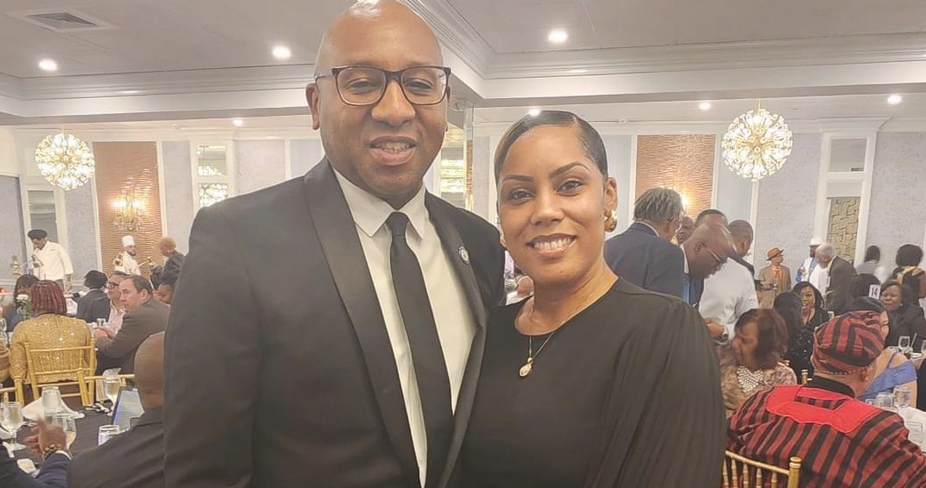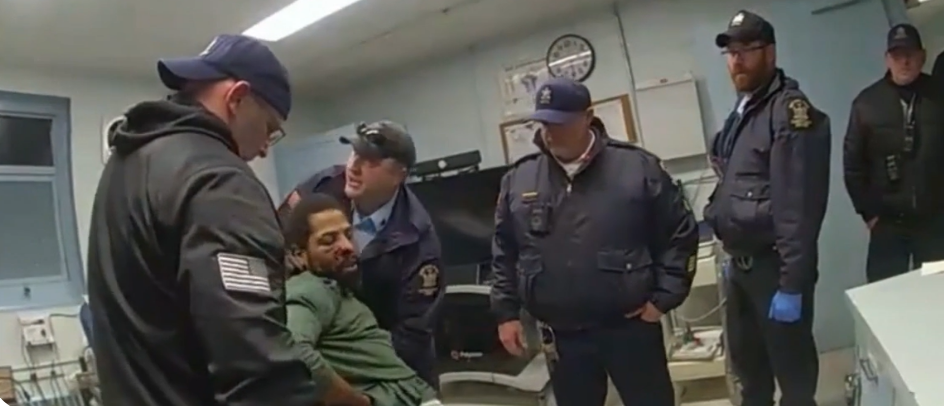his scene serves as analogy for the state of colonialism forced upon the Indian reservation close to the woman’s bleak trailer. The small boy’s transformation of himself into a living Christmas, even though his own family has no gifts to place under the real tree in his home speaks volumes …..
[Review: Film]
“Don’t worry, there are no Black guys out there.”
These are the reassuring words spoken by an American Indian Mohawk woman to a white housewife whose recently deserted husband has absconded with the food money and the next installment payment on her new house. The desperate woman is forced to contemplate driving her car across a frozen river to ferry illegal aliens. Anything for a buck. The ice may crack, plunging her to any icy death—this is what happened to the Indian woman’s man. But that’s alright. As long as there are no Blacks to deal with.
These biased words carry the worlds of racial bias that permeate the movie, Frozen River, which recently opened in several cities, including New York after winning the 2008 Sundance Grand Jury Prize for Best Film.
Critics have hailed the somber depiction of the two single women as a “character study about women in the inclement climate of hard living; but deeper contexts lie beneath the ice and snow of the poverty the movie depicts.
In one telling scene, the white woman’s son, twirls his body around a string of Christmas lights; after her is wrapped from head to toe with multicolored glow and electrical cord—he calls his brother. His sibling looks at the spectacle, and responds, “that’s pretty neat, but it may hurt when you sit down.”
This scene serves as analogy for the state of colonialism forced upon the Indian reservation close to the woman’s bleak trailer. The small boy’s transformation of himself into a living Christmas, even though his own family has no gifts to place under the real tree in his home speaks volumes and spews screens of the American Western superiority claimed by Christian whites who ignore, isolate, and marginalize Asians, Africans, and the first Americans, the American Indians.
The white woman, played by Melissa Leo, a former star player on the television series, Homicide—Life on the Street, continues to hold contempt for the aliens she agrees to smuggle across the border between the U.S. and Canada. The Indian woman who has enlisted her as an ally in the conspiracy continually reassures her that the authorities will not harm her because, “you are white.”
The white woman, called Ray, ridicules the first aliens she stuffs in her trunk, who happen to be Chinese, wondering why they could be stupid enough to pay up to $40,000 apiece to come to the U.S. Later when the alien cargo is of Pakistani origin, she becomes paranoid that the aliens may harbor terrorist intentions. She discards a duffel bag an alien is carrying, fearing it may be explosives—it turns out to be a baby. A baby thrown away in the snow a day before Christmas—what could be more symbolic?
The late Edward Said, cultural critic and Columbia University professor, often wrote frequently of American “orientalism,” a tendency of American power structures to conceptualize an “Other,” populated by people and languages which are and should be dominated by the West.
Frozen River shows this level of contempt which has contemporary parallels with the Iraq reconstruction effort The Mohawk reservation has a tribal council which has theoretical control over the land that the two women travel—but when the car with aliens is intercepted, the law enforcement officials force the tribal council to comply with a series of demands for the surrender of the smugglers as well as the smuggled. This diminishment of real power has counterpart with the Iraq reconstruction bodies, which are frequently dominated and overruled by American military and civilians forces.
The contempt shown by Americans to both Iraq and American Indian territories stems from the propagation of both peoples as savages willing to destroy any and all—even though the land they occupy is their native terrain. The classic Cowboy and Indian movie has its equivalent in the heroic image of the American soldier going off to war in a Middle Eastern land in which all faces he encounters are hostile and can be destroyed, i.e. the recent murder of 90 civilians in Afghanistan by an American airstrike on August 22 in pursuit of ‘militants’ stands as stark commentary on ‘democratization’ in foreign lands.
The throwaway baby by Ray, the poor white woman has its precedence in a statement by Winston Churchill in 1937, quoted by Arundhati Roy in War Talk, when she noted that the Nobel Prize winner for Peace said of the Palestinians that: “I do not agree that the dog in a manger has the final right to the manger, even though he may have lain there for a very long time. I do not admit that right. I do not admit, for instance, that a great wrong has been done to the Red Indians of America, or the black people of Australia. I do not admit that a wrong has been done to these people by the fact that a stronger race, a higher grade race, a more worldly-wise race, to put it that way, has come in and taken their place.”
So even at Christmas time when young and old sing: away in a manger, no crib for his head, the little Lord Jesus lay down his sweet head,”—a dog according to Churchill may be ultimately more superior than a Middle Eastern child. The river of contempt needs much thawing.
Timothy Maliaqalim Simone wrote in a book called About Face: Race in Post Modern America in 1989 that “the affirmation of differences need not cloud fundamental similarities….but reach for experiences and expressions of human desires which exceed what has been known.”
When poor white women realize they are caught in a cage of economic bondage that constantly turns around in a circle of stagnant economic growth, they and their children may stop circling around in a spiral of lights that move nowhere.






